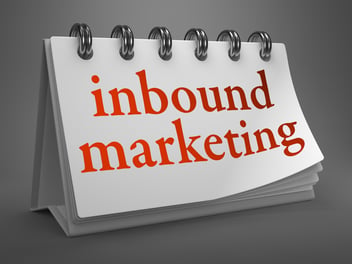We all hate aggressive salespeople. No matter how interested we are in a particular product or service, once we get even just a whiff of an over-eager seller, our tendency is to walk away. There is really no explanation for why most people do that. One could only assume that people always know when you are taking value from them. And hard selling means they will have to listen to you and give you a few minutes of their precious time. You are taking from them a most valuable commodity– time. And not everyone is willing to do that.
 Fortunately, Inbound keeps your potential customers from walking away after detecting the slightest hint of a hard sell. Going for the Inbound approach means you first give value, and establish yourself as some sort of an expert in the topics that interest your target audience. You gain their trust first, become a reliable source of information for topics that are relevant to them. This means that you sell your products or services without resorting to hard selling – an old marketing and sales tactic which somehow always irritates people.
Fortunately, Inbound keeps your potential customers from walking away after detecting the slightest hint of a hard sell. Going for the Inbound approach means you first give value, and establish yourself as some sort of an expert in the topics that interest your target audience. You gain their trust first, become a reliable source of information for topics that are relevant to them. This means that you sell your products or services without resorting to hard selling – an old marketing and sales tactic which somehow always irritates people.
You make them seek you, so anything you offer to them in the end will not sound like a sale but rather, a suggestion, and one that they would feel they should take because they have already deemed you as someone who knows better. That is exactly how the Inbound Methodology works.
Now, deciding to practice Inbound is the first step, learning the Inbound Methodology is next. Once you are fully convinced, and are eager to practice Inbound, then it’s time for you to understand the fundamentals of an Inbound Strategy.
That is just the most natural and sensible course of action, after all, one cannot build a house without bricks, one cannot bake a cake without flour.
We’re sure you’re excited about implementing an inbound strategy in your business, so we’ll go ahead and tell you about Inbound Strategy and its fundamentals. Have fun learning the FUNdamentals!
The Fundamentals of an Inbound Strategy
We have already established that consumers abhor having to listen through a hard sell. Or being sold anything they are not interested in, let alone have no need for, at all. It is important that you first gain their trust, and become something or someone they actually believe in.
To build this kind of relationship and this level of trust, you must first provide value. How, you might ask.
It really depends. There are plenty of ways you could provide value to prospective buyers/customers/clients, but among the top ways that businesses provide people with value is by giving useful information or tips about topics that actually matter to prospects. These pieces of information might be something that answers their questions, give them insights, or just really make them more informed buyers.
Do you understand the game yet? We sure hope you do!
Let’s proceed.
So the game seems to be mostly about content, information, educating buyers and not deliberately and blatantly selling them anything. This is Inbound. And to execute this properly would require that you understand the fundamentals of an Inbound Strategy, if you can’t learn the fundamentals, you might never be able to come up with a true Inbound Strategy.
Fret not, however, we’re sure you’re going to learn. You were curious enough to land on this page. With just a few more paragraphs, we can assure you that you will learn the basics of implementing an Inbound Strategy– but first things first, let us understand the fundamentals.
Here they are!
Your Company’s Purpose
It is not enough to build content. Maybe for a while it would seem enough, but in the long run, what will determine the longevity of your brand or company is its purpose. Your company’s purpose is its WHY. And as that famous adage goes: “If you have a why to live for, you can take on any how”.
Your company’s purpose is what will carry it through difficult times– times when the economy crashes or when disasters strike you from all sides. This is also the one thing that you can rally your entire company behind. If they understand why you must do the work that you do, they will feel more connected to the people they serve, and then they will become more motivated to show up and go beyond the bare minimum.
The Alignment of Your Company’s Goals
Among the fundamentals of an Inbound Strategy is also your company’s goals. Imagine this: there are 100 employees in your company. They all clock in at the same time every day, and once inside the office, they carry on with their routines. They get coffee, they list their priority tasks, they touch up in the bathroom— these small chunks of time that they spend preparing for the day better be geared towards achieving one goal, right?
What if they are not clear on this? What happens then? Well, what happens is that you waste a lot of time and resources. They all carry on with their morning routines, and take their own sweet time as they do, and yet the company’s goals aren’t met by the end of the day because the goals were never aligned in the first place.
If the company’s priority/ goal is to meet that deadline in the next two weeks, then everyone better be working towards that goal too. If the long term goal is to insure over 1,000,000 families in the USA by the next 10-15 years, then everyone in the company better act in the service of that goal.
Alignment of goals saves you money and time.
Buyer Personas
Nevertheless, no matter how aligned your company goals are, if you don’t know who you are serving, the efforts you make in achieving those goals would be futile as well. It would be like throwing darts while blindfolded.
You need to have a clear idea of who your ideal customer is. This is what’s great about Buyer Personas, they are products of extensive research and analysis, and a close inspection of your existing customers. From all that, these semi-fictional personas are made– resembling almost perfectly your ideal customer, or the ones that are already buying from you.
Buyer Personas are a great aid to all of your teams. They serve as guides for all of their work.
Buyer’s Journey
Keep in mind though, that every interaction that your teams have with a prospect or an existing customer should be tailored to where these people currently are in the Buyer’s Journey. Can you imagine how a repeat customer would feel if your team would talk to him/her as if they are telling the customer about the selling points of the product they’ve already been buying for the last 12 months? They’d feel as if they never really mattered to you.
Talk about waste of their time, and yours, too.
Inbound Growth Platform
In fully implementing an Inbound Strategy, you’d need tools that help you practice Inbound in the truest sense of the word.
This Inbound Growth Platform must include various tools that will help you align your entire organization. What sort of platforms your teams and your entire company would need will probably be a judgment call, in a way. From Customer Relationship Management to chat bots, there is an abundance of technology one can use.
So there you have it, the fundamentals of an Inbound Strategy.
If you’re looking to learn more on how to grow your business the inbound way, download our eBook. It offers you more tips on the subject matter, it’s basically Inbound made easier for you!

 What are the Fundamentals of an Inbound Strategy?" loading="lazy">
What are the Fundamentals of an Inbound Strategy?" loading="lazy">


